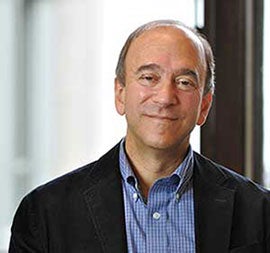What are your priorities for the Environmental Law Program?
We’re trying to make a program that is engaged in the outer world of law and policymaking. When people have tough problems in this field—when they’re trying to craft legislation or regulations—they can come to Harvard and tap into the expertise of the faculty and the students here. Our plan is to approach things in a nonpartisan, nonideological fashion to help break the logjam that has afflicted this area for too long.
You’ve presented oral arguments more than a dozen times before the Supreme Court. Is there a case that stands out for you?
One of the most gratifying was Norfolk & Western Railway Co. v. Ayers, where I represented six elderly individuals who were suffering from exposure to asbestos. It was a very challenging case, but we won it 5-4, and we won it with a very unanticipated division among the Court. Our five justices were Ginsburg, Souter, Stevens, Scalia and Thomas. Anything where you think you’ve crafted an argument that makes a difference, and you’ve done something particularly creative—it doesn’t get much better than that.
What was your experience like as executive director of the commission assigned to investigate the 2010 BP oil spill?
My job was to hire and manage a 60-person staff that was investigating exactly what happened before, during and after the Macondo well blowout. We had six months to create a report for the president. The task was backbreaking, and that’s an understatement, but it was fabulous public service.
Have there been changes since you turned in the report?
Yes, the Department of the Interior has made a lot of the changes that we recommended in terms of how they oversee the oil and gas industry. The industry has actually taken on some of our initiatives. The gap is Congress. There’s a whole series of things that Congress needs to enact, both in the development of oil and gas resources and in making that safer. A lot of them are low-hanging fruit. We have a broken legislative process right now in most areas, mired in partisanship. But in this case it is especially telling because it’s so disturbing. Normally if you have a catastrophe, you can get Congress to act; but Congress has passed nothing. It’s just absurd—this is really easy stuff to do.
In your book, “The Making of Environmental Law,” you talk about the field “graying” as it enters middle age. What does that effectively mean for the field?
It means that it’s no longer considered to be a radical outlier—it’s more part of the settled legal landscape. On the other hand, the reference to graying also refers to the fact that there’s a risk that with Congress dropping out of the lawmaking process, environmental law is losing some of the dynamism that it needs in order to deal with some of the most current issues, with climate change being a pressing example.
You have argued that “climate change legislation is especially vulnerable to being unraveled over time.” Why?
Most environmental law is redistributive, and whenever you propose redistributive law, it’s very hard to enact. Once it’s enacted, those who feel they’re on the short end of the stick are likely to try to find ways to erode it. It’s really hard to get people in one time and one place to modify their activities for the benefit of people in a very different place and very different time. Yet that’s what climate change legislation is all about. So we need to make sure that when we finally do enact climate change laws, which I’m hoping will be sooner rather than later, the laws are sticky—that they’re capable of being maintained over time.
